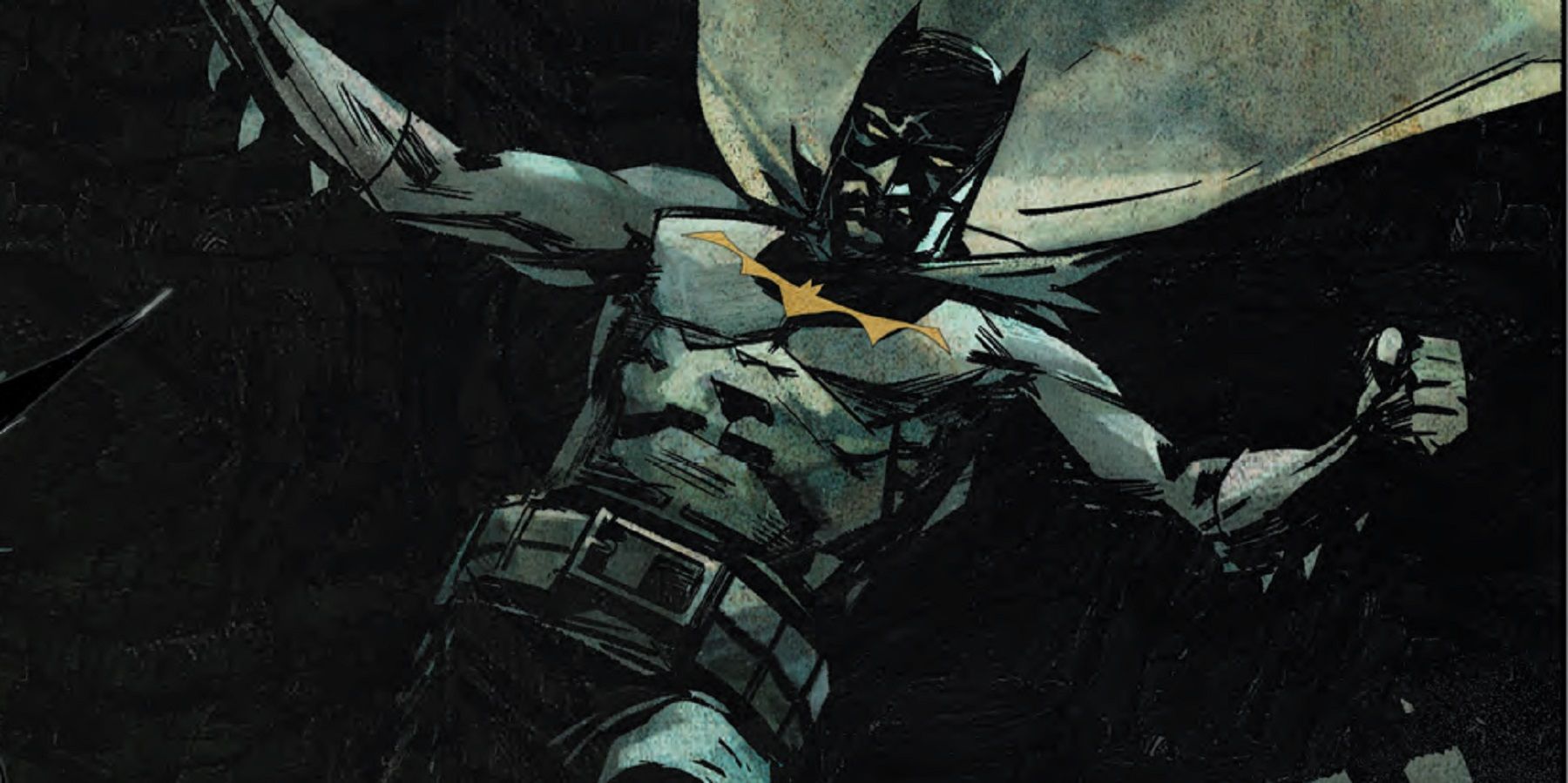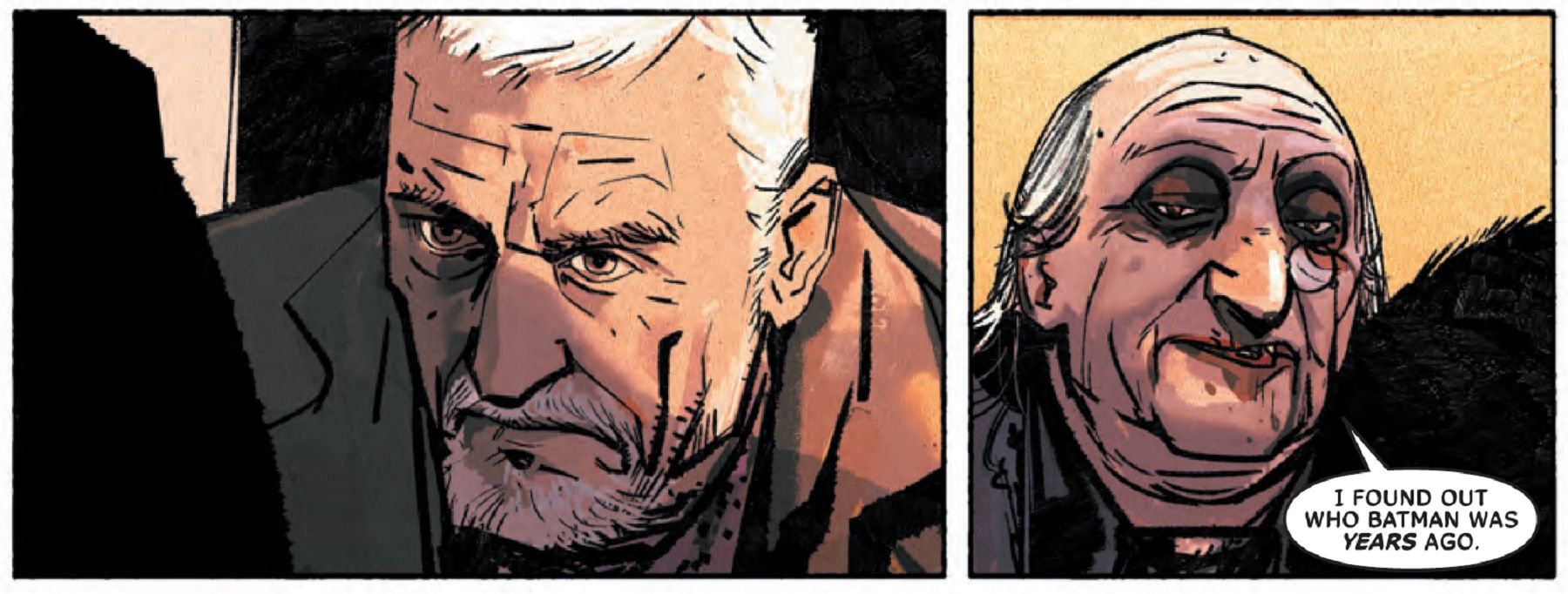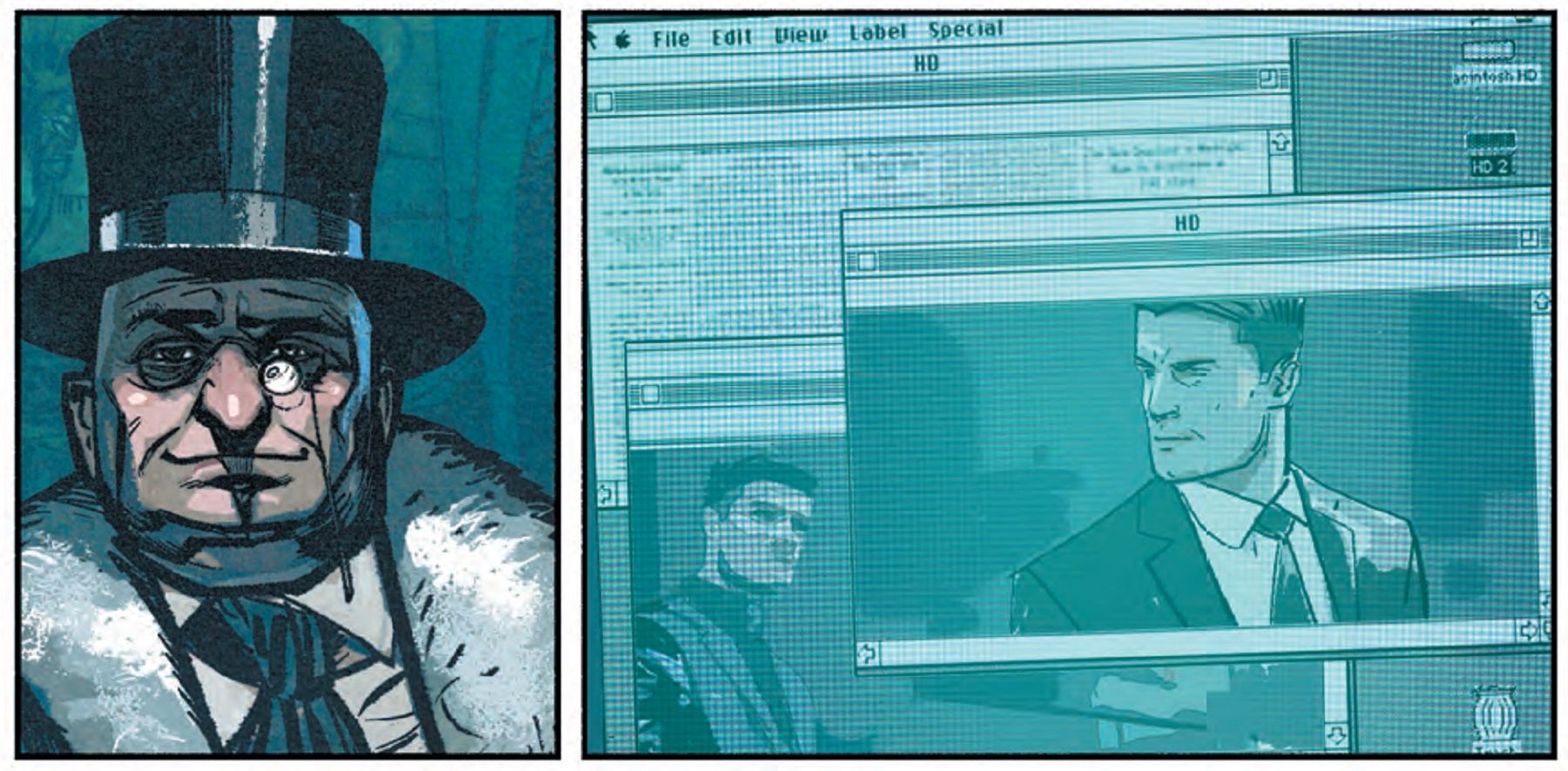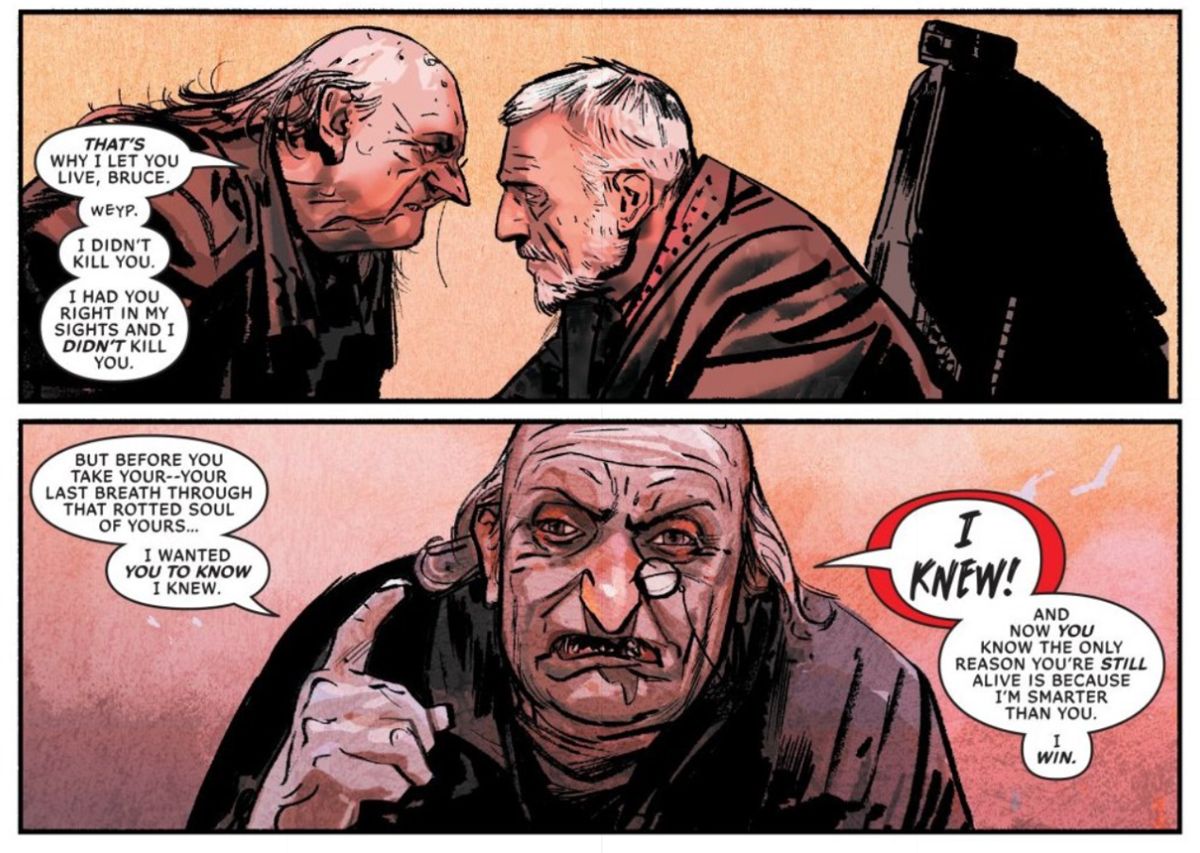SPOILER WARNING: The following article contains major spoilers for Detective Comics #1000's "I Know" by Brian Michael Bendis, Alex Maleev and Josh Reed, on sale now.
After more than 80 years, DC's oldest title finally reaches its millennial milestone. Detective Comics #1000 features a dozen stories commemorating The Dark Knight's past, while ushering in his future. One of these stories actually goes into Batman's future, and examines a startling aspect of the Batman's persona – long after he's hung up the cape and cowl.
What He Knew
Brian Michael Bendis and Alex Maleev's "I Know" looks not only at Batman's future, but also that of one of his best-known foes. On the grounds of Wayne Manor, an aged Oswald Cobblepot pays a visit to an elderly Bruce Wayne – one who has presumably given up the mantle of The Bat. Upon confronting Bruce, The Penguin reveals to Bruce a startling revelation – that he had deduced Bruce was indeed The Batman.
Cobblepot didn't just figure this out, either – he had figured it out decades ago. And with that information, he had devised a plan to destroy Batman by destroying a comparatively weaker Bruce Wayne, along with those close to him. After all – Batman's secret identity had long been what allowed Bruce and those close to him to live in relative safety. But with the cover unknowingly blown, Cobblepot had seen Bruce as all too easy a target.
Before Penguin pulled the figurative trigger on his plan, though, a troubling question popped into his head: what if his plan failed? What if his attempt on Bruce's life was unsuccessful – and Bruce learned Cobblepot was behind it? How would The Dark Knight react to the attempted murder of not just himself, but that of his friends, family, and colleagues?
Cobblepot's fear was rooted in the notion that Bruce might have used the attack on him to fake his own death. Only Bruce's death, that is – not Batman's. Batman would now exist without a civilian guise, and without Bruce's moral compass to guide him, Cobblepot feared that Batman would become a dark, driven, and even more dangerous foe. One that now would have no compulsion against killing him.
RELATED: Detective Comics #1000: Tomasi and Mahnke Tease Arkham Knight Details
What, or Who, Batman Really Needs
Cobblepot therefore not only reveals what he has long known about Bruce, but also why he never took advantage of that knowledge. And in doing so, he puts forth a theory that has had comparatively little exploration throughout The Dark Knight's history: Batman has needed the grounded persona of Bruce Wayne to keep the darkness from consuming him.
The idea that the persona of Batman needs something, or someone, to balance the darkness in his life is nothing new. The idea was explored in depth 30 years ago in Marv Wolfman, George Pérez and Jim Aparo's "A Lonely Place of Dying" arc. Prior to that storyline, Batman had been driven deeper into darkness in the wake of The Joker's murder of Jason Todd, aka the second Robin.
A persistent Tim Drake, soon to become the third Robin, convinced Batman that his life needed balance. It needed light. It needed something that would arrest and reverse Batman's ever spiraling decent.
Batman needed a Robin.
It made perfect sense. And arguably, a Batman running around solo and constantly consumed with darkness had become a rather dreary and one-dimensional storytelling experience. That was why the character of Robin was introduced in the first place, only a couple of years after Batman's own debut. Batman's supposed to be a hero, after all, and such a frequently dark character sometimes needs someone a little brighter to keep his heroic light from being extinguished.
But, goodness always starts from within. All the Robins and Alfreds and Jim Gordons in the multiverse can't keep Batman grounded, if he's not willing to ground himself first. If Bruce Wayne wasn't inherently a good soul, The Dark Knight never would have become a force for good. Batman can cloak himself in darkness and channel it into something positive – but only with a positive driving force behind it. Without the compassion and altruism of Bruce Wayne behind the mask, Batman stands to possibly serve as a true force of darkness, rather than just dressing himself in it.
RELATED: Jim Lee Teases His Detective Comics #1000 Story With Kevin Smith
What Could Happen – or Already Is
It's not hard to imagine such a scenario, and in fact it's currently being addressed. Scott Snyder, James Tynion IV and Eduardo Risso's The Batman Who Laughs: The Grim Knight #1 shows such a Batman. In that story, young Bruce momentarily succumbs to darkness immediately after his parents' murders – and never escapes from it. His evolution into the Grim Knight incarnation of Batman has no trace of the old Bruce – he instead is a character driven by nothing more than vengeance. The character is never even seen in his identity as Bruce Wayne.
The character The Grim Knight spun off from, The Batman Who Laughs, has drifted even further from the traditional version of Bruce. Twisted and warped by The Joker's toxin, this incarnation of Batman has left Bruce Wayne even further behind. That character is nothing short of an evil version of Batman – one who's long liberated himself from any influence his original civilian persona might have had.
And in the recent The Batman Who Laughs #3, "our" Bruce Wayne just made what appears to be a selfless sacrifice: transforming himself into another Batman Who Laughs. But Bruce's intent here is to defeat the original Batman Who Laughs from the Dark Multiverse. While he appears just as evil as his counterpart, this version isn't one who's broken – he's one who is still driven by the morality of Bruce Wayne.
Old Man Penguin's theory about Bruce could be one simply chalked up to paranoia or simple fear. Nonetheless, it poses an interesting philosophy about Batman's – and Bruce Wayne's – potentially opposing natures. Perhaps Batman is destined for darkness, without a moderating and heroic persona to pull him back. There have certainly been enough alternate scenarios to support it.
Batman might have always needed a Robin, but he probably always needed a Bruce Wayne even more.




